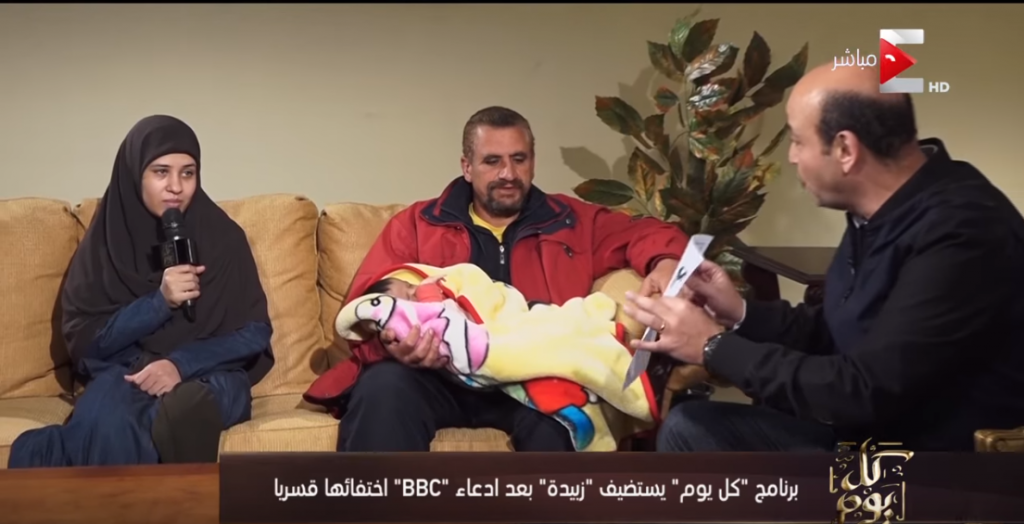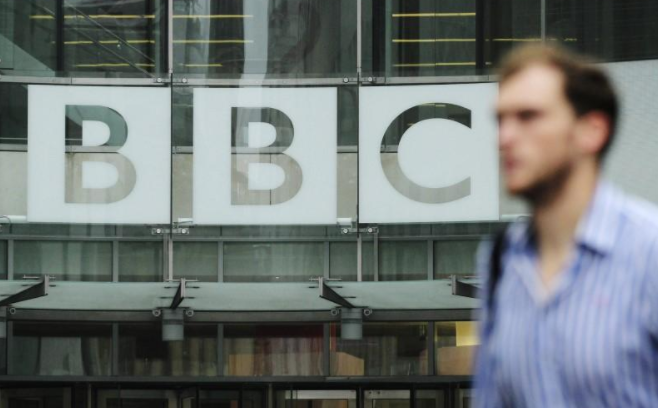My picture above this article was taken by Esraa al-Tawil. All the pictures of my wife’s birthday were also taken by Esraa. The clock in the form of a ladybug on the shelf of my library was a present from Isra, for she liked the colors of this beautiful insect. She could make faces look more beautiful in pictures, for she could see better the beauty in the world.
But Esraa has disappeared 10 days ago, and the world has become ugly.
Esraa was 23 years old, but her baby face made her look even younger, while her experience made her look older. She lived in Saudi Arabia until she came to Egypt in 2010 to go to university. She had the accent of the Gulf people, which seemed funny.
She picked up photography with the revolution and made it her profession, working as a freelance photographer for some newspapers while she was studying.
On January 25, 2014, Esraa was taking pictures of a demonstration in front of the Mostafa Mahmoud Mosque in Dokki. The chants against the Brotherhood and the regime were suddenly silenced with live bullets, leaving behind 102 dead protesters, while Esraa was shot in the back and fell paralyzed.
She spent months lying in bed. Then she was able to move on a wheelchair. And when she attended my wife’s birthday, she came in walking with difficulty on crutches. But she was as cheerful as ever.
On June 1, Esraa asked her friends Omar Mohamed Ali and Sohaib Saad to take her out to dinner. And the last time we heard from them was at 9 pm when they were on the Corniche in Maadi. They have disappeared and their phones have been out of reach since then.
There have been too many cases of enforced disappearance lately. The person who had disappeared often appears again after having been interrogated by some official body other than the Investigation Bureau, to be referred to the Prosecution.
Last May, I received a message from a student named Ahmed Abu Leila from the Tanta University Faculty of Medicine, in which he wrote that he has reported that his father was kidnapped from his home on May 18 at dawn. And 11 days after the story was spread on Facebook, his father appeared before the Prosecution to face charges related to the Muslim Brotherhood, and was detained for 15 days.
Many similar cases that we have not heard of have definitely happened to members and supporters of the Muslim Brotherhood because the authorities can do whatever they want with those people.
On May 1, Mohamed Abdel Shafy, a student at the Faculty of Engineering, disappeared. Two weeks later, he appeared at the Prosecution and was released on bail.
On May 3, Ahmed Ghoneim, a student of the Faculty of Science, disappeared. He appeared a month later in prison.
The media began to talk about the phenomenon when it started to happen to people not necessarily affiliated with the Muslim Brotherhood.
On May 24, Ashraf Mansour, a photographer of the Yqeen News Network, disappeared. He appeared later at a Central Security camp in Benha.
At the dawn of May 26, Sheikh Anas Sultan and his two brothers were arrested from their home in Nasr City. Despite his relations with Al-Azhar influential circles, nobody knew of his whereabouts until he appeared again four days later in the Prosecution.
On May 31, activist Dalia Radwan disappeared in Alexandria. She appeared arrested three days later and denied bail.
Al-Masry Al-Youm had issued a report on the disappearance of seven people in six days.
The National Council for Human Rights, a government body, received 55 complaints about enforced disappearance and heard the testimonies of the families of the disappeared persons.
It is very scary that all what the families of those 55 people hope is for their relatives just to be alive and not tortured.
Article 54 of the Egyptian Constitution stipulates that anyone whose freedom is restricted must be explained the reasons for it and allowed to call his family and his lawyer immediately, to submit referred to investigation within 24 hours from the time of restriction only in the presence of his lawyer.
The Constitution did not put any exception to this rule. It must be applied equally to crimes, whether committed by thieves, murderers, rapists or terrorists.
Omar’s sister, Sarah, told the Al-Watan newspaper that there were several security checkpoints that evening in Maadi. And when she went to ask about her brother, she was told that he was not listed there and could be detained at the National Security headquarters.
The mobile phones of the three were switched on again and their families were called, but the line was deliberately hung up. No one understood why whoever had detained them was doing this, except just to give their families a hard time.
Esraa’s sister, Doa, denied that her sister was the spokesperson for the “Women against the Coup” movement. Official Interior Ministry spokesman Abdel Kerim Abu Bakr said he did not hear of the incident and promised to look into it.
What more can I say for people to sympathize with with Esraa. I already said she was a cheerful person. Maybe if I talked about her cat Woodie people would sympathize.
Forgive me, Esraa, for I do not know what to do. I have stopped dreaming of changing Egypt. All I want now is that my friends and family stay alive and outside prison if possible.
I thought that we have reached the bottom, but it seems there is another nadir beneath. All I want is to know where our loved ones have disappeared. Is this a lot to ask?
Edited translation from Al-Masry Al-Youm




